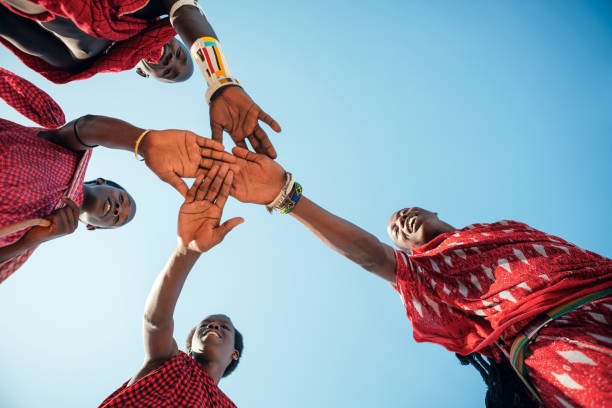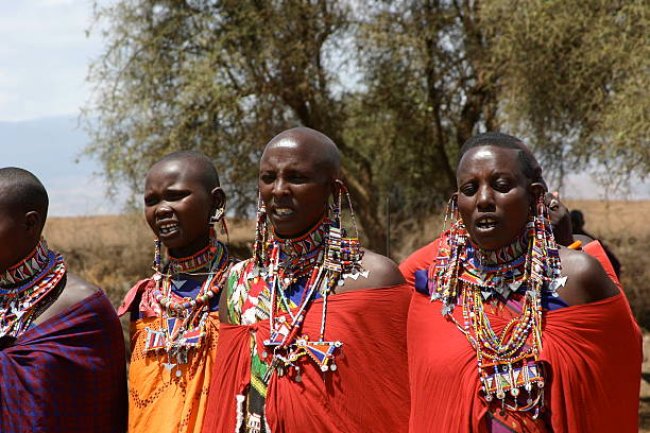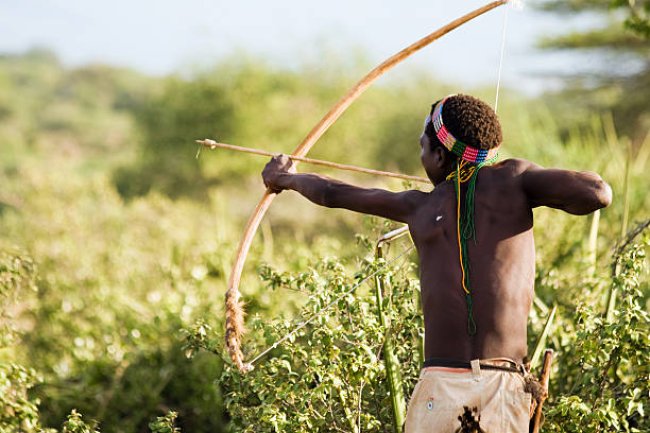Tanzania’s Cultures: Maasai, Hadzabe, Swahili, and Local Traditions
Explore Tanzania's rich cultures from the Maasai to the Hadzabe, and Swahili. Discover local traditions, tasty foods, and unique festivals in this East African gem.

Tanzania: A Rich Blend of Cultures
Tanzania is a country full of different cultures and traditions. In this East African nation, old customs mix with new influences, creating a unique and vibrant culture. From the well-known Maasai Culture to the ancient Hadzabe Culture, and the lively Swahili Culture along the coast, Tanzania offers a wonderful experience for anyone wanting to explore its diverse cultures.
Maasai Culture: Protectors of the Grasslands

The Maasai Culture is one of the most famous and easily recognized in Africa. The Maasai people are known for their bright red clothing and beautiful beadwork. They live a traditional life that revolves around their cattle, which are very important to them. For the Maasai, cattle are not just animals—they are a source of food, a sign of wealth, and a key part of their Maasai Culture.
If you visit Tanzania, you should definitely experience the Maasai Culture. The Maasai live in the Maasai Mara, a large area of grasslands that stretches across Tanzania and Kenya. Here, you can visit Maasai villages, called bomas, where you can meet the Maasai people, learn about their customs, and even join in their traditional dances. These experiences give you a unique look into the Maasai Culture.
It’s important to be respectful when visiting the Maasai. Their culture is very important to them, and practicing Ethical Tourism means being mindful of their traditions and making sure your visit helps their community. By appreciating the Maasai Culture, you’ll understand more about their way of life.
Hadzabe Culture: The Last Hunter-Gatherers

In the remote areas of Tanzania, you’ll find the Hadzabe Culture, one of the last groups of people who still live as hunter-gatherers. Unlike the Maasai, who raise cattle, the Hadzabe survive by hunting animals and gathering wild fruits and vegetables. Their way of life has stayed the same for thousands of years, offering a rare look into how people lived in the past.
When you visit the Hadzabe, you step into their world. A visit to their community lets you see how they hunt with bows and arrows and gather plants for food and medicine. The Hadzabe Culture is deeply connected to nature, and spending time with them shows you a lifestyle that is quickly disappearing.
As with the Maasai, it’s important to be respectful when visiting the Hadzabe. Their culture is delicate, and it’s important to follow the guidance of experienced guides who know how to interact with the Hadzabe Culture in a way that is respectful and considerate. By doing so, you help preserve the Hadzabe Culture for future generations.
Swahili Culture: A Mix of Influences
On the coast of Tanzania, you’ll find the lively Swahili Culture. This culture is a blend of African, Arab, and Indian influences, which you can see in their language, religion, and customs. Swahili, the language spoken by the Swahili people, is widely used in East Africa and is a big part of Tanzania’s identity.
Zanzibar, an island off the coast of Tanzania, is the center of Swahili Culture. The island’s capital, Stone Town, is a historic area that shows the rich history of the Swahili Culture. As you walk through its narrow streets, you’ll see a mix of African, Arab, and European architecture, all reflecting the diverse past of the Swahili Culture. The famous carved wooden doors of Stone Town are a great example of this.
While in Stone Town, you can visit busy markets where people sell everything from spices to handmade crafts. You’ll also get to taste Swahili Cuisine, which is known for its use of spices like cloves, cinnamon, and cardamom. Whether you’re eating seafood at a local restaurant or trying street food, the flavors of Swahili Cuisine will leave a lasting impression.
Local Cuisine: A Tasty Experience
One of the best ways to experience Tanzania’s culture is through its food. Tanzanian Cuisine is a mix of different flavors, influenced by the many cultures that make up the country. The main food in Tanzanian Cuisine is ugali, a thick maize porridge that is often served with stews made from meat, fish, or vegetables. Rice is also common, especially in coastal areas, where it’s often paired with fish or curry.
If you’re visiting the coast, don’t miss the chance to try Swahili Cuisine. Seafood is a big part of Tanzanian Cuisine here, with dishes like grilled fish, calamari, and crab being popular choices. These dishes are often flavored with the spices that Zanzibar is famous for, making them a delicious experience.
Exploring local markets is another way to enjoy Tanzanian Cuisine. Here, you can try street foods like chapati, a type of flatbread, or nyama choma, which is grilled meat. These markets are also a great place to buy spices and other local products to take home as souvenirs of Tanzanian Cuisine.
Festivals and Events: Celebrating Tanzanian Life
Tanzania’s vibrant culture comes to life during its many Festivals and Events. These celebrations give you a chance to experience the country’s traditions and connect with its people.
One of the most important celebrations is Saba Saba, a day that marks the union of Tanganyika and Zanzibar. This day is celebrated with Festivals and Events across the country, including parades, performances, and speeches. Another big event is the Dar es Salaam International Trade Fair, which shows off Tanzanian products and industries. This event is not just a celebration of the country’s achievements but also a chance to experience its diverse Festivals and Events culture.
If you’re interested in the arts, the Zanzibar International Film Festival is a must-see. This Festival and Event brings together filmmakers from across Africa and the world, showing a variety of films that reflect the rich cultural heritage of the region. The festival also features music, dance, and other performances, making it a celebration of both local and international Festivals and Events culture.
Joining in these Festivals and Events is a great way to dive into Tanzanian culture. You’ll get to enjoy traditional music and dance, taste local foods, and meet people from all over. These Festivals and Events experiences will give you a better understanding of the Tanzanian spirit and leave you with wonderful memories.
Interacting with Tanzanians: A Cultural Exchange
One of the best parts of traveling to Tanzania is meeting its people. Tanzanians are known for their warmth and friendliness, and talking with them is an important part of any cultural experience.
When visiting Tanzania, it’s important to be respectful. Learning a few basic Swahili Greetings can go a long way in showing your appreciation for the local culture. Simple phrases like “Jambo” (Hello) and “Asante” (Thank you) are easy to learn and can help you connect with the people you meet. Using these Swahili Greetings will make your experience richer and help you bond with the locals.
Supporting local businesses is another way to make a positive impact during your visit. Buying handicrafts and souvenirs from local artisans not only gives you unique keepsakes but also helps support the community. Whether you’re purchasing Maasai beadwork or Swahili spices, these items carry the essence of Swahili Culture and Swahili Greetings.
Finally, practicing Ethical Tourism is key when traveling in Tanzania. This means being mindful of your actions and their impact on the environment and local communities. By supporting sustainable practices, you can help keep Tanzania’s natural beauty and cultural traditions alive for future generations. Ethical Tourism also means respecting the traditions of the Maasai Culture, Hadzabe Culture, and Swahili Culture by engaging with them thoughtfully and respectfully.
Conclusion: Enjoy the Diversity of Tanzania
Tanzania is a country where old traditions meet new influences, creating a rich and diverse culture. From the well-known Maasai Culture of the grasslands to the Hadzabe Culture of the hunter-gatherers and the lively Swahili Culture of the coast, Tanzania offers a wealth of cultural experiences that are sure to leave a lasting impression.
Whether you’re exploring the busy markets of Stone Town, joining in a traditional Maasai dance, or tasting the flavors of Tanzanian Cuisine, you’ll find that Tanzania’s culture is as diverse as its landscapes. By diving into the local culture, you’ll gain a deeper appreciation for this beautiful country and its people. And remember, by practicing Ethical Tourism and using respectful Swahili Greetings, you can ensure that your visit is enjoyable and meaningful for both you and the communities you encounter.
What's Your Reaction?
















